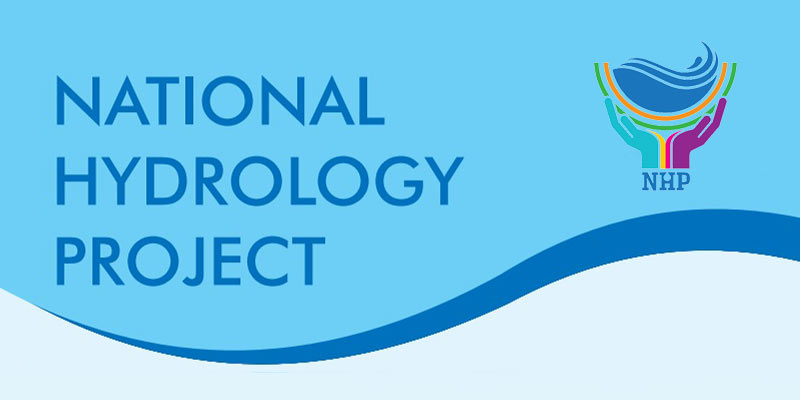- India
- Dec 01
Explainer / National Hydrology Project
The first edition of the India Young Water Professional Programme was launched virtually on November 29. This programme has been taken up under the National Hydrology Project, which is funded by the World Bank and also supported by the Australian Water Partnership.
Hydrology Project and its impact
• Hydrology Project, an initiative of the government with financial assistance from World Bank has been central to efforts in India to improve the planning, development, and management of water resources, as well as flood forecasting and reservoir operations in real-time.
• The project having completed two phases (Phase–I between 1995-2003 and Phase–II between 2006-2014) has successfully established the backbone of a comprehensive Hydrological Information System (HIS) in India providing scientifically verified, uniformly accepted and widely accessed hydrological records covering all aspects of the hydrological cycle.
• This project was instrumental in setting a paradigm shift from relatively isolated water resources development towards comprehensive planning development and management of water resources in a river basin context.
• It has created a platform for water agencies in India to learn from each other, which encouraged them to move from manual to Real-Time Data Acquisition Systems (RTDAS), and develop tools for Integrated Water Resources Planning and Management with the objective to enhance the productivity and cost effectiveness of water related investments.
National Hydrology Project
• Based on the successful outcome of the project, the government expanded it as National Hydrology Project.
• National Hydrology Project (NHP) was launched in 2016 as a Central Sector Scheme with 100 per cent grant to implementing agencies on pan India basis with a budget outlay of Rs 3679.76 crore to be spent over a period of eight years.
• The project aims to improve the extent, reliability and accessibility of water resources information and to strengthen the capacity of targeted water resource management institutions in India.
• It will also provide tools/systems for informed decision making through Decision Support Systems (DSS) for water resources assessment, flood management, reservoir operations, drought management, etc.
• NHP also seeks to build capacity of state and central sector organisations in water resources management through the use of information systems and adoption of state-of-the-art technologies like remote sensing.
• Out of the total outlay, Rs 3,640 crore has been earmarked for National Hydrology Project while Rs 39.7 crore has been kept aside setting up of National Water Informatics Centre (NWIC).
Australian Water Partnership
• Australia’s Department of Foreign Affairs and Trade (DFAT) has placed India at the forefront of its international relationships, and water is a key element of this cooperation as is evidenced by the formal cooperation between the governments of India and Australia regarding water issues which began in 2009.
• India is a priority country for the Australian Water Partnership (AWP) for diplomatic, hydrological, and commercial reasons, but also in its aim to support countries where Australia’s knowledge and experience can have a positive outcome for water management practices and for communities.
• AWP is providing technical assistance to the National Hydrology Project, which aims to improve water management across India at national and state levels.
• In December 2015, the AWP Advisory Committee endorsed a proposal from the World Bank to facilitate technical assistance for the National Hydrology Project in India in seven areas, including surface-groundwater interactions, river basin planning, water information systems, water accounting and Supervisory Control and Data Acquisition (SCADA).
• AWP continues to support the third phase of the National Hydrology Project (NHP-III).
India Young Water Professional Programme
• The launch of the India Young Water Professional Programme marks a significant milestone in Australia-India Water relationship.
• This programme looks to prepare future water leaders.
• This programme will be implemented by Australia India Water Centre (a consortium of Australian and Indian universities).
• It aims to provide a structured platform for capacity building with strategic and long-term investment to support the water management reforms in India.
• The objectives of the programme are to equip water professionals with the necessary skills, knowledge, behaviours and networks that will better enable them to contribute to the development and management of water resources in India, and to address the competency needs and priorities of the water sector in India.
• About 70 per cent of the programme is focused on project based learning through Situation Understanding and Improvement Projects (SUIP). A total of 20 participants have been selected for the first edition of this programme (10 men and 10 women) from central and state implementing agencies of the National Hydrology Project.
Manorama Yearbook app is now available on Google Play Store and iOS App Store

